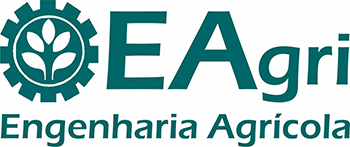The experiment was conducted at the experimental area of the Rural Engineering Department of the Faculdade de Ciências Arárias e Veterinárias, Câmpus de Jaboticabal, Universidade Estadual Paulista (FCAV/UNESP), Brazil. The aim of this work was to verify the effect of the water deficit on maize (Zea mays L.) crop during vegetative growth, in its production and physiological seed quality. A completely randomized statistical design with four replications, in a 3 x 2 factorial array was used. The treatments consisted of three irrigation periods (during maize growth; after the emission of the 12th leaf, and 20 days after flowering time), using cross hybrids seedling BR201 and DINA-70. Results indicated that the water deficit on the vegetative growth (irrigation only after the emission of the 12th leaf) was the most harmful to maize plants and their production; the water deficit didn't affect the physiological seed quality. The physiological and production parameters were better in the cross hybrid DINA70 than in the hybrid BR201.
hidric stress; growth analysis; water management












